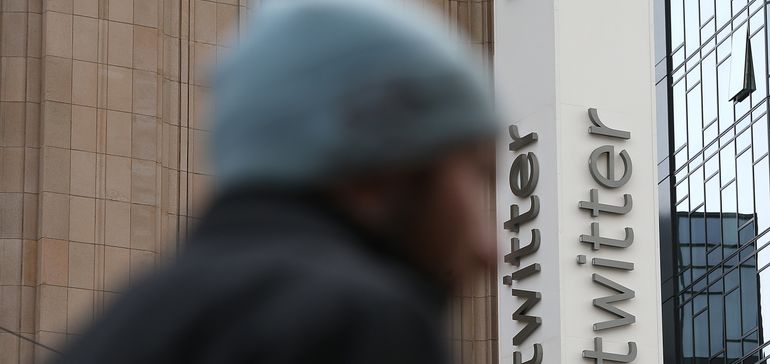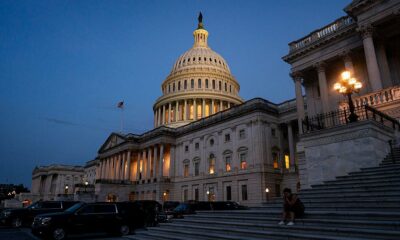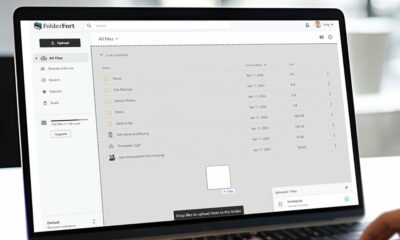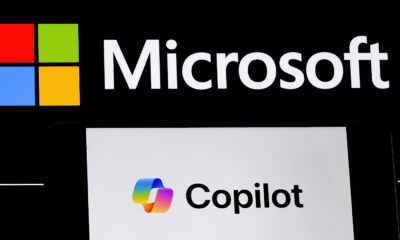SOCIAL
Musk Gains More Data on Twitter’s Bot Presence, Dorsey Weighs in on Twitter’s Current State

I get the sense that the judge overseeing the upcoming Twitter vs Elon Musk trial really doesn’t care for Elon all that much.
With the trial set for October, in which Musk will seek to exit his $44 billion Twitter takeover bid, on the grounds that Twitter has lied about the presence of bots and spam on its app, Musk and Twitter are now in the evidence-gathering stage, as they look to formulate their respective cases in the process.
This week, Musk and Co. had what appeared to be a win, with former Twitter Security chief Peter ‘Mudge’ Zatko leveling a range of accusations against the company, including the suggestion that Twitter has indeed deliberately lied about the presence of bots and spam in the app.
Musk himself seemed pretty happy with Zatko’s revelations – though whether they’ll actually make any difference, in relation to Musk’s legal case, is up for debate.
Though it seems unlikely, with Twitter noting that the original terms of the deal include the provision that its bot/spam numbers are estimates, not stone-clad data points, which Musk agreed to when he signed the original document.
That means that Musk and his team will probably still need to find another way out – and this week, Musk’s team had another minor win, with the judge in the case ruling that Twitter has to provide more insight into how it assesses its bot/spam counts.
Musk and Co. asked for a range of data points on the accounts that Twitter has assessed in the past, and the judge ruled that Twitter does have to provide some additional info.
But there was also this:
“Chancellor Kathaleen McCormick of Delaware’s Court of Chancery said many of Musk’s data demands were “absurdly broad,” amounting to trillions of data points that “no one in their right mind has ever tried to undertake such an effort.”
Throughout the exploratory process, McCormick has seemed largely unsympathetic to Musk’s position, as Twitter has presented its legal case. After viewing Twitter’s original case notes, McCormick ruled that the case trial would be expedited to 5 days in October, which is much shorter and faster than Musk’s team had pushed for.
That could reflect the view that Twitter is on steadier ground, in a legal sense (though Twitter had pushed for a September trial date), with the complexities that Musk and Co. have presented failing to shift the needle, at least at this stage of the process.
But now, Musk will get more data, while Musk is also seeking to sit down with Zatko to discuss his revelations, in the hope that this too will help to solidify his case.
It doesn’t seem like it’ll add a heap of legal weight to Musk’s claims – but then again, Zatko’s testimony does cast more doubt over Twitter’s internal processes, while the pending fines as a result, which could be in the billions, may also be grounds for dismissal of the takeover agreement, based on Material Adverse Effect (i.e. an unforeseen change in the situation which alters the make-up of the original agreement).
But probably not. We’ll just have to wait and see.
On another front, former Twitter CEO Jack Dorsey awakened from hibernation this week to share some of his usual, faux-philosophical thoughts on how things are going for the app.
In response to a tweeted question about whether Twitter has turned out the way that he wanted, Dorsey said that his biggest regret is that Twitter became a company in the first place.
Dorsey – who’s made millions from selling Twitter stock – has a new, revisionist perspective: that Twitter should actually be a protocol instead, which would operate more like email, and would not be owned by a company or state.
Which is stupid, and makes no sense for various reasons – while it’s also worth noting that Dorsey has previously said that his ‘biggest regret’ is:
So, basically, Jack Dorsey has a lot of regrets, which reflects both his fickle nature and his philosophical flexibility, which will change again next time you ask him.
In other words, don’t ask Jack. Going on remarks from those who worked at the company during his tenure, he wasn’t around much either way.
So, things are still pretty tense, still pretty chaotic in the Twitter/Musk stakes, with the latest accusations probably not helping Musk’s case, but definitely not helping Twitter itself in any way either.
Which is the next big question – what happens to Twitter after the trial in October?
If Musk somehow does win, and wriggles out of his takeover bid, Twitter will be left with a huge mess to clean up, and not much money with which to do it, while if Musk loses, he’ll be taking over a company that he publicly fought tooth and nail to get away from, which is probably not ideal situation for the staff that are left behind.
And then, again, will come the potential fines based on Zatko’s testimony, while Twitter’s share price, you would expect, will also be in free fall – because clearly, even Elon saw something in the app’s documentation that made his flip on the app.
Basically, in three months time, we’re going to be looking at Twitter a lot differently. And it probably won’t be for the better.
The five-day Elon vs Twitter trial is scheduled for October 17th


















You must be logged in to post a comment Login